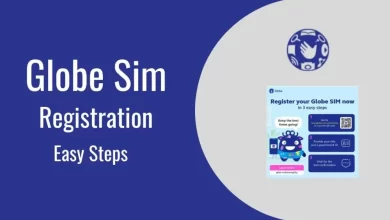Email Marketing Excellence: 17 Key Practices for High Engagement

In the quest for high engagement in email marketing, we’ve gathered insights from CEOs, marketing heads, and other industry leaders to share their most effective practices. From incorporating multiple engagement CTAs to using the customer voice for relevance, explore the seventeen key strategies that have driven exceptional campaign results for these experts.
- Incorporate Multiple Engagement CTAs
- Use a Casual, Human Tone
- Add Interactive Campaign Elements
- Tell Sustainability Stories
- Leverage Personalized Data
- Connect with Seasonal Events
- Send Personalized Video Emails
- Focus on Storytelling and Personalization
- Create Exclusive Video Tutorials
- Craft Curiosity-Driven Subject Lines
- Optimize with A/B Testing
- Create a Sense of Exclusivity
- Provide Value Beyond Sales
- Segment Lists by Detailed Interests
- Ensure Email-Landing Page Congruency
- Personalize Content by Life Stages
- Use Customer Voice for Relevance
Incorporate Multiple Engagement CTAs
A key practice we follow to ensure high engagement in our email marketing is to ensure there is more than one action that can be taken. So rather than putting all our eggs in one basket, engagement-wise, we try to include multiple CTAs (calls-to-action) at different intent levels.
So this may be one to “get in touch with our team,” and one to “read further information” about the subject covered (perhaps on our website or LinkedIn page).
This is based on the idea that only a small portion of our audience will be ready to commit to a sales action, but that isn’t the only useful step we can encourage them to take. This may be the focus of the communication, but we will also allow a “less qualified” action too.
An example of this is a series of “guides” we run through email marketing. These involve an informational piece explaining some key SEO areas to be aware of. At the end of this email, the main action we are encouraging them to take is to get in touch for an audit with one of our experts. This will allow them to uncover how well they fare in the subject covered.
However, we also offer an option for those contacts that aren’t as far down the funnel, in the form of a “find out more” CTA. In this case, it was a button that said, “Or, you can find out more about X in our full guide…”
This approach means that we aren’t limiting our email engagement to only the highest-intent contacts. While these are the most important engagements, it is also important to get those “lighter-touch” engagements as well, as they help to increase a contact’s intent through consideration.
This campaign certainly achieved this, with every single edition not only receiving multiple direct sales leads but also a large number of clicks through to our guides, helping to build those contacts in the consideration phase.
Alex Myers, Head of Marketing, The SEO Works
Use a Casual, Human Tone
We’re very intentional about the tone we use in our emails—it’s casual, friendly, and human. We’ve found that our users respond better when we talk to them like a colleague rather than a faceless brand. Whether it’s a product update or an educational tip, we make sure it sounds like advice from a friend, which leads to much higher engagement rates. Authenticity goes a long way in email marketing, especially when people are overwhelmed with robotic, corporate-sounding messages.
We ran a campaign encouraging users to take a break and “unplug” using our tool to manage their work-life balance, which was wildly successful. We used playful, yet relatable language, along with infographics that showed the benefits of tracking time not just for work, but for rest as well. People loved the fresh angle and appreciated that we weren’t just selling them on productivity, but also on self-care. This campaign saw a 35% click-through rate, and many users shared their own stories about how they used our tools to improve their daily lives.
Alari Aho, CEO and Founder, Toggl Inc
Add Interactive Campaign Elements
One key strategy I use for myself and my agency clients to drive high engagement in email marketing is incorporating interactive elements that encourage audience participation. A recent example was a “2 Truths and a Lie” campaign. I shared three statements—two true, one false—and invited subscribers to identify the lie. The first correct response earned an incentive, which added a layer of friendly competition. This approach resulted in a 7% higher open rate and significantly more replies than usual.
Additionally, I included a P.S. with a link to an offer, which generated several sales. By combining engagement tactics with a clear call to action, the campaign successfully boosted both interaction and conversions, and helped my audience see a more human side to the business.
Lauren Diana Scalf, Business Coach & Strategist, Soul Empowered with Lauren Diana
Tell Sustainability Stories
One thing we’ve worked hard on at our Certified B Corporation (a company that sells beeswax products to reduce greenhouse gas emissions) is to build sustainability stories directly into our email marketing. This is selling with a purpose—how your purchase contributes to a more sustainable environment. We’re finding that this approach really resonates with the audience who want to work with ethical and sustainable businesses.
For example, one of our campaigns last year focused on the environmental impact of replacing plastic wraps with beeswax wraps, and each email included a customer’s story of how they’ve incorporated our products into their lifestyle, and subsequently reduced plastic waste. We also included other interactive elements, such as a clickable map depicting the overall positive environmental impact our customers have had around the world, measured in pieces of plastic wrap not used.
The email had incredible results. Our engagement rates went through the roof, and sales skyrocketed. But perhaps more importantly, we created a movement that strengthened our community’s commitment to sustainability and perfectly aligned with our brand values and mission. We weren’t selling products; we were promoting a movement, and our customers really became committed to being a part of it.
Antoinette Jackson, Creative Director & Founder, SuperBee
Leverage Personalized Data
One key practice our business follows for high engagement in email marketing is leveraging personalized data to create highly targeted campaigns. We analyze our customers’ past purchasing behaviors, browsing history, and demographics to tailor our communications. Whether it’s using their first name in subject lines or delivering product recommendations based on their interests, we ensure that every interaction feels customized.
One email campaign that achieved exceptional results involved a partnership with a prominent beverage brand. By analyzing data, we identified frequent buyers of a specific product for their bars and restaurants. We then developed a tailored campaign offering personalized suggestions on how to integrate this product into their meal offerings, including suggested food pairings, glassware, and time-based promotions. This attention to personalization drove a 25% increase in repeat orders and significantly improved customer loyalty. The key was showing the customer that we understood their needs and offering value that aligned with their business goals.
Kim Lawton, Founder and CEO, Enthuse Marketing Group
Connect with Seasonal Events
A fundamental strategy we employ to enhance engagement in our email marketing efforts is connecting our content to seasonal events.
For instance, last year, we distributed an email titled “New Year, New Financial Goals,” which struck a chord with subscribers eager to embark on new financial journeys. By synchronizing our message with the onset of the new year, we ensured that the content was both timely and pertinent to our audience. This approach resulted in a notable increase in engagement, as the theme inspired readers to establish financial resolutions and take proactive steps.
Utilizing seasonal themes in this manner allows us to maintain engaging content that resonates with the current interests of our audience.
Shawn Plummer, CEO, The Annuity Expert
Send Personalized Video Emails
One of the things we do with our email marketing is send out personalized emails that contain a short, personalized video to each of the subscribers. These are not just your normal emails with text in them, but emails with a video inside where we provide a personalized message to the subscriber based on what they’re doing in our coaching program or just a video of a message to follow up their last payment.
This is how we did it: We split our subscription list according to the coaching sessions and milestones each subscriber had achieved. Someone who had just finished the first month of a leadership development track might get a video from their coach that congratulated them, explained some next steps, and gave some tailored tips on how to optimize their learning.
This campaign was hugely successful—recipients felt an immediate personal connection to their coaches, and they were motivated to continue on their journey with us. Engagement metrics skyrocketed as clients were excited to open what they knew was their personalized email every time, leading to a significant boost in our re-engagement rates and program retention.
Adam Klein, Certified Integral Coach® and Managing Director, New Ventures West
Focus on Storytelling and Personalization
One key practice we follow for high engagement in email marketing is focusing on storytelling and personalization. Rather than treating our audience like a list of faceless names, we make an effort to connect with them on a personal level.
A while back, we ran an abandoned cart recovery series that wasn’t just about reminding people to complete their purchases—it was about making them feel connected to the product they were considering.
The Campaign: “Behind the Cart”
Instead of using the usual “You left something behind” reminder, we decided to tell a story behind the product they abandoned.
Email 1 – The Story Behind Your Product (Sent 2 hours after cart abandonment): We didn’t just say, “You left this behind.” We told them why the product was special. If it was a handcrafted leather wallet, for example, we shared a short story about the artisan who made it, the hours of work that went into crafting it, and the uniqueness of each item.
Subject Line: “The Story Behind Your [Product]… ”
“We noticed you were eyeing our handcrafted leather wallet. Did you know it takes hours to create each one, and no two are exactly the same? Our designer, Sarah, puts her heart into every detail. We think this one might be a perfect fit for you.”
Email 2 – Social Proof (Sent 24 hours later): The second email focused on customer reviews and testimonials. We shared stories from people who had purchased the same item, explaining why they loved it. This added a layer of trust and relatability.
Subject Line: “Here’s Why Others Love Your [Product] ”
“Jane from New York says, ‘I carry this wallet daily, and it’s only gotten better with age.’ Take another look—you might find it’s the one you’ve been searching for.”
Email 3 – A Friendly Discount (Sent 48 hours later): For the final email, we offered a discount but kept the tone light and friendly. The idea wasn’t to pressure the customer, but to gently encourage them to make a decision.
Subject Line: “A Special Offer Just for You ”
“We’ve set aside your [product], and here’s a little gift—10% off to help you make your decision. We’d love to see this find its way to you.”
This campaign wasn’t just about getting sales—it was about creating a personal connection with our audience. As a result, we saw a 45% increase in conversions. Customers even replied to the emails, thanking us for the stories and sharing how much more connected they felt to the brand.
Adeel Shafiq, Digital Marketing Manager, Mumara
Create Exclusive Video Tutorials
We’ve found that personal connection is the secret sauce for our email marketing success. Instead of bombarding our subscribers with impersonal, text-heavy emails, we create weekly video tutorials exclusively for our email list. These videos are tailored to our audience’s interests in streaming, VPNs, and home tech, giving them a reason to eagerly anticipate our emails each week.
One campaign that really hit the mark was our VPN review series. We created “first look” videos for the most popular VPNs, offering our honest take on what worked well and what fell short for each service. This approach allowed our audience to see and hear our genuine reactions, rather than just reading a dry comparison chart. It’s like inviting our subscribers into a conversation with a knowledgeable friend who’s tested these services firsthand.
The results spoke for themselves. Our open rates shot up, and we saw a significant increase in click-throughs to our website. But more importantly, we received a flood of appreciative responses from subscribers who felt like we were really looking out for their interests. This campaign didn’t just boost our metrics—it strengthened the trust and rapport we have with our audience, which is invaluable in the long run. By putting a face and voice to our recommendations, we’ve created a more engaged and loyal community.
Ryan Doser, Contributing Tech Author, TROYPOINT
Craft Curiosity-Driven Subject Lines
Making subject lines intriguing but not misleading. Crafting curiosity-driven subject lines encourages higher open rates, as long as the email content delivers on the promise, and that’s a key strategy we use at Osborne’s Law.
In one campaign, we used the subject line, “Is your legal protection up to date?” which intrigued our subscribers. The email provided actionable tips on staying legally protected in personal and business matters, aligning perfectly with the subject line. This balance between curiosity and valuable content led to a notable increase in open and click-through rates. It demonstrated the importance of matching an intriguing subject line with relevant, insightful content.
Chris Aubeeluck, Head of Sales and Marketing, Osbornes Law
Optimize with A/B Testing
A key practice in our email marketing strategy is A/B testing, which helps us optimize key elements like subject lines and content to drive higher engagement. Recently, we applied this to promote the launch of a new feature.
We tested two subject lines: one highlighting the feature’s technical capabilities and the other focusing on the practical benefits for the user. Additionally, we experimented with the email content—one version provided a brief overview with a clear CTA, while the other offered a more detailed explanation with visuals showing how the feature worked.
The A/B testing revealed that the benefit-focused subject line outperformed the technical one, boosting open rates by 20%. Similarly, the detailed email with visuals resulted in a 25% higher click-through rate compared to the shorter version.
By using these insights, we optimized the campaign and saw a 30% increase in user adoption of the new feature compared to previous launches. A/B testing enabled us to fine-tune our messaging, ensuring it resonated more with our audience and led to greater engagement.
Dan Tabaran, Head Of Marketing, Influencity
Create a Sense of Exclusivity
We swear by creating a sense of exclusivity in our email marketing.
People love feeling like they’re getting something special that others aren’t. We ran a campaign where we offered a “sneak peek” at an upcoming investment opportunity only to our email subscribers before it was made public. We emphasized that it was a limited-time offer and that we were giving them first access as a token of appreciation for their loyalty. This approach not only drove high engagement, with a 50% open rate, but it also led to several early investments. It’s a great reminder that when people feel valued and in-the-know, they’re much more likely to act.
Austin Rulfs, Founder, SME Business Investor, Property & Finance Specialist, Zanda Wealth
Provide Value Beyond Sales
Prioritize value over sales. How many of the marketing emails you get are about what you can buy from the company? We focus on giving people a reason to open our emails by offering value beyond what we can do for them. Our “Cybersecurity Tip of the Week” email series provides actionable advice to our email recipients. We occasionally share industry news and case studies. As a result, we got 3x more open rates and 50 more students. See emails as another content channel to provide value and build relationships, and they will choose to buy.
Oliver Page, Co-Founder & CEO, CyberNut
Segment Lists by Detailed Interests
One key practice is advanced list segmentation. This doesn’t mean just segmenting by customers versus prospects. This means segmenting by interests, demographics, behavior on your website, location, products viewed, products purchased, what they’ve clicked on, etc. We even recommend surveying your audience regularly to get updated information about their preferences and interests. You can get a lot of information from your email list by implementing deep segmentation strategies.
One of our clients is a supplement company and thought their demographic was mostly elderly folks. We ran a survey and realized a huge portion of their list was pro athletes. We split these two segments and started sending targeted content to each demographic based on their interests and preferences. As a result, email-attributed revenue was at an all-time high, having increased from 5% to 20%, and product subscriptions increased by 130% in 3 months.
Amy Hage, Co-founder, Strategy Maven Agency
Ensure Email-Landing Page Congruency
Our landing page is congruent to the email. A well-crafted email can capture attention, but without a landing page consistent with the details of the email, all the effort will go to waste. Even with a captivating design, compelling subject line, and good deliverability, the journey doesn’t end with the email. They need a landing page that delivers the email’s promise to guide them smoothly towards taking action.
We had a campaign promoting a new line of joint health supplements named “Paw Power.” The email had images of happy, active dogs, and the subject line was an offer: “20% Off the First Purchase with a Limited Time Promo Code.” We had a CTA button: “Unlock 20% Off for a Happier, Healthier Dog.” The landing page features the same imagery and consistent branding and provides detailed information about the supplement, customer review, and easy checkout process.
Our click-through rates increased by 19% as conversion rates increased by 12% compared to previous campaigns. Aligning your landing page to the email avoids a disjointed user experience, increasing the success of your email marketing efforts.
Angelo Sorbello, Founder, Pet Sprint
Personalize Content by Life Stages
One thing that’s really worked for us in email marketing is making the content feel personal. Instead of sending the same email to everyone, we break our list down by what each group is interested in and what stage of life they’re in. For example, one of our best campaigns was aimed at people thinking about a career change. We shared real stories from graduates who had switched to trucking, which really connected with people. We also provided information about programs that fit their needs. This approach led to a 35% increase in open rates and a noticeable jump in sign-ups.
Lauren Gast Stevens, Director of Marketing and Communications, Truck Driver Institute
Use Customer Voice for Relevance
Speak to your customers, retrace their buying process, and use their words (voice of the customer) to create email marketing aligned with the true hurdles facing people at various stages of the sales process.
I see a lot of people relying on ChatGPT, but there’s nothing more impactful than using the words your customers have used to reel people in and get their attention.
I’ve mapped out six unique stages my ideal clients go through when realizing and pursuing the use of my services. I collect customer voices from the interviews I run with them, then use them to create email marketing campaigns that have been proven to reduce the sales cycle and reduce friction during onboarding.
It’s a process I use with my clients, who’ve gone on to attract 220 leads in one campaign, increase free trial to paid conversion rates by 30%, and increase the average order value by 20%.
Lucy Heskins, Founder and B2B Marketing Consultant, Oh Blimey
Submit Your Answer
Would you like to submit an alternate answer to the question, “What is one key practice your business follows for high engagement in email marketing, and can you elaborate on an email campaign that achieved exceptional results?”
Related Articles
- Email Marketing: Do’s and Don’ts – TechBullion
- Email Marketing Best Practices for Enhanced Campaign Success – TechBullion
- Email Marketing Best Practices with the 5 Best Free Tools





